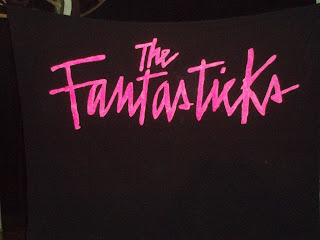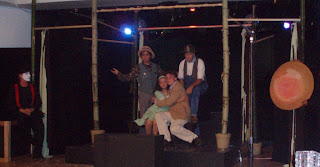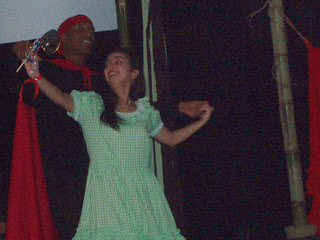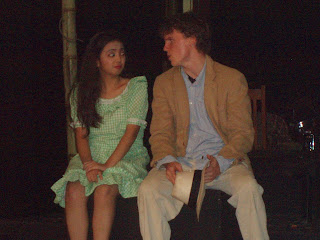new posts in all blogs
Viewing: Blog Posts Tagged with: Friends of the Arts, Most Recent at Top [Help]
Results 26 - 36 of 36
How to use this Page
You are viewing the most recent posts tagged with the words: Friends of the Arts in the JacketFlap blog reader. What is a tag? Think of a tag as a keyword or category label. Tags can both help you find posts on JacketFlap.com as well as provide an easy way for you to "remember" and classify posts for later recall. Try adding a tag yourself by clicking "Add a tag" below a post's header. Scroll down through the list of Recent Posts in the left column and click on a post title that sounds interesting. You can view all posts from a specific blog by clicking the Blog name in the right column, or you can click a 'More Posts from this Blog' link in any individual post.
Gordon Thompson is Professor of Music at Skidmore College. His book, Please Please Me: Sixties British Pop, Inside Out, offers an insider’s view of the British pop-music recording industry. In the post below he looks at Beatlemania.
Not far from the bustle of London’s Oxford Circus, in the two short blocks of Argyll Street (and  especially outside the colonnaded façade of the London Palladium), anticipation rose from the sidewalks like steam escaping a pent-up subterranean boiler. In the cool evening air of 13 October 1963 at the Palladium’s stage door, even nearby Great Marlborough Street grew misty with the exhalations of stalking teenage mobs. Ultimately, their quarry would thwart them by escaping out the Palladium’s front door and into a miraculously undistinguished and suburban version of an Austin Princess, leaving the stage and the stage door behind them.
especially outside the colonnaded façade of the London Palladium), anticipation rose from the sidewalks like steam escaping a pent-up subterranean boiler. In the cool evening air of 13 October 1963 at the Palladium’s stage door, even nearby Great Marlborough Street grew misty with the exhalations of stalking teenage mobs. Ultimately, their quarry would thwart them by escaping out the Palladium’s front door and into a miraculously undistinguished and suburban version of an Austin Princess, leaving the stage and the stage door behind them.
Forty-five years later, the images of British teens jumping, crying, grinning, and screaming as the Beatles smilingly tolerate the frenzy can still amaze us and leave us wondering “Why?” We cannot see the estimated fifteen million British viewers who electronically tasted the elixir in the comfort of their homes, but our voyeuristic glimpse of these adolescent exhortations can stir some of the same reactions. Many authors have placed the mass psychosis in the contexts of the Berlin wall, the Cuban missile crisis, the Profumo scandal, the continual threat of nuclear annihilation, and the Kennedy assassination. Others point to the demographic “bulge”: the postwar babies who had entered puberty and found the Beatles to be a happy excuse to express their independence. We might even consider the early sixties infatuation with electronic media: James Bond’s paraphernalia twisted into guitars, amplifiers, microphones, and cameras. (From Russia with Love premiered on 10 November 1963.) No single event or factor can explain the throngs that stood for hours waiting for concerts, and all of the factors together still leave us to ponder the exponential growth of adulation.
In the weeks that followed the Palladium concert, fans flocked to see the Beatles off on their first Scandinavian tour (closing down Heathrow when they returned). And they crowded outside the venerable Prince of Wales Theatre for the annual Royal Variety Performance on Monday 4 November 1963 where John Lennon uttered his infamous “rattle your jewelry” comment. The broadcast of this event the following Sunday on 10 November drew an eager audience of teens to watch the telly in family homes where innumerable conversations began on the subject of decorum and music.
But perhaps one of the most important events in the ascent of Beatlemania had taken place the previous year on a Friday in an improvised studio. EMI had invited teens into their Manchester Square corporate offices to function as an audience for a Radio Luxembourg taping on 16 November 1962 promoting the Beatles first single, “Love Me Do.” (Radio Luxembourg broadcast the program the next Friday.) For EMI, the introduction of pimply-faced hormone-addled adolescents into their sanctuary of accounting must have seemed a necessary inconvenience. But in the heart of that modern edifice, a pulse began that would shake the building, the nation, and the world. When host Muriel Young began introducing the band, the audience squealed and crowded the stage area, cowering close to the musicians, basking in the energy, and radiating the primordial impulse to bond. In that moment, the Beatles themselves sowed the seeds of insanity, magical beans that would grow and carry them into the land of pop giants.
ShareThis

By: Rebecca,
on 9/9/2008
Blog:
OUPblog
(
Login to Add to MyJacketFlap)
JacketFlap tags:
pop,
“hey,
thompson,
gordon,
studios,
yardbirds,
decks,
jude”,
trident,
recording,
Music,
History,
A-Featured,
Beatles,
Hey Jude,
british,
gordon thompson,
please please me,
Add a tag
Gordon Thompson is Professor of Music at Skidmore College. His book, Please Please Me: Sixties British Pop, Inside Out, offers an insider’s view of the British pop-music recording industry. In the post below he looks at the end of 60’s Brit-Pop.
Tucked into a tight lane off busy Wardour Street in London’s Soho district, the Beatles gathered on 31 July 1968 to begin something they had done only a few times previously: record outside the safe confines of EMI’s Recording Studios in Abbey Road. They had  grown increasingly dissatisfied with EMI’s reluctance to invest in competitive equipment, while bands like the Rolling Stones and the Who had been recording in American studios for years. These bands flocked to Los Angeles both because of the recording culture and because of technology that EMI had postponed installing: eight-track recording decks instead of the four-track decks common in British studios. When the Beatles arrived at Soho’s Trident Studios for “Hey Jude,” they intended to add vocals to their EMI four-track recording of the musical backing. However, when they heard playback on the eight-track Ampex decks through Trident’s sound system, they immediately relegated the first tape as rehearsal and began working anew.
grown increasingly dissatisfied with EMI’s reluctance to invest in competitive equipment, while bands like the Rolling Stones and the Who had been recording in American studios for years. These bands flocked to Los Angeles both because of the recording culture and because of technology that EMI had postponed installing: eight-track recording decks instead of the four-track decks common in British studios. When the Beatles arrived at Soho’s Trident Studios for “Hey Jude,” they intended to add vocals to their EMI four-track recording of the musical backing. However, when they heard playback on the eight-track Ampex decks through Trident’s sound system, they immediately relegated the first tape as rehearsal and began working anew.
Trident had its problems. Principally, the owners, the Sheffield Brothers, had simply plugged American machines that ran on an alternating current of sixty-cycles into the British fifty-cycle system, resulting in slower playback at a lower pitch. Any pitched overdubs that the Beatles would have tried over their original EMI recording would have been hopelessly out-of-tune. But over the next few days, the Beatles would re-record the backing track to “Hey Jude,” add vocals, and play with musical possibilities that eight tracks allowed. The new environment may have expanded their musical options, but it also amplified personality quirks and irritated old wounds. In particular, Paul McCartney antagonized his old friends through his preoccupation with perfection and his predilection for prodding his colleagues to improve their product. The first casualty was Ringo Starr who quit the band on 22 August, returning only in early September after tempers had cooled.
The London recording and music industries were beginning to evolve under the combined influences of their relatively sudden international success and the growth of independent studios like Trident. In September of 1968, as “Hey Jude” rose to the top of British and American record charts, the infrastructure that had grown to produce hundreds of British pop recordings underwent a sudden revolution. The session musicians, music directors, producers, songwriters, and engineers who had generated the diverse array of British pop, rock, and blues recordings under the cover of touring bands like Herman’s Hermits, the Dave Clark Five, Them, and the Yardbirds felt the system shudder.
“Hey Jude” describes the break-up of John Lennon’s marriage to Cynthia and its effects on their son Julian. Moreover, the inordinately long recording (over seven minutes) reflects McCartney’s interest in hymn-like musical structures (e.g., “Let It Be”) and serves as a requiem for the musical world that the Beatles had helped to define. Just as “Hey Jude” rose in international sales charts, a London trade paper, the New Musical Express, reported that two longstanding London session musicians had formed the “New Yardbirds.” Jimmy Page had established himself as a free-lance producer and John Paul Jones had demonstrated his skills as a music director. But, as technology and its availability transformed the industry, they saw their opportunity to leave the safety of session life. Thus, in the waning months of 1968, British recording engineers left for America, session musicians and music directors went on tours, and the old studios scrambled to stay competitive. The New Yardbirds, who soon renamed themselves Led Zeppelin, launched their mystical macho imperative into the seventies while the Beatles celebrated the end of sixties British pop by making a sad song sound better.
ShareThis

By: Rebecca,
on 8/11/2008
Blog:
OUPblog
(
Login to Add to MyJacketFlap)
JacketFlap tags:
Music,
rock,
Politics,
A-Featured,
Beatles,
World History,
August,
gordon thompson,
please please me,
Revolution,
lennon,
“revolution”,
mccartney,
Add a tag
Gordon Thompson is Professor of Music at Skidmore College. His book, Please Please Me: Sixties British Pop, Inside Out, offers an insider’s view of the British pop-music recording industry, and will be published in August. In the article below he looks a Beatles’ revolution.
On 21 August 1940, Winston Churchill famously declared, “Never in the field of human conflict was so much owed by so many to so few.” The RAF had been dominating the Luftwaffe in the air and Churchill saw an opportunity to bolster British morale amid the fire, smoke, and death on the ground. In Liverpool less than two months later and during the Blitz, a mother would celebrate the Prime Minister’s resolve by naming her son John Winston Lennon, someone else to whom many would owe much and no less so than for what he contributed in another turbulent August.
On 11 August 1968, the Beatles announced “National Apple Week” and launched their own label, Apple Records, as a declaration of independence from corporate media. In many respects, they were babes in the woods with the wolves of the industry at their heels, but during a summer of increasingly violent riots and protests, Lennon, Paul McCartney, George Harrison, and Ringo Starr defied expectations of their demise. In August 1967, their manager and friend Brian Epstein had died after naïvely mixing drugs and alcohol, leaving the band and their finances in shock and disarray. Almost immediately, the Beatles went into a brilliantly destructive tailspin, launching one ill-fated venture after another: a divisive retreat to India with the Maharishi, a clothing store on Baker Street renowned for shoplifting, and the Boxing Day disaster of their film, Magical Mystery Tour. A year after Epstein’s death, they returned to what they knew best: making records.
Apple released three charting records on 30 August 1968: Mary Hopkin’s “Those Were the Days” (produced by Paul McCartney), Jackie Lomax’s “Sour Milk Sea” (produced by George Harrison), and the Beatles’ “Hey Jude” and “Revolution.” Both the Hopkin and Beatles disks would climb to the top of British charts, but where the former simply updated a nostalgic Russian ditty, the latter broke new ground in more ways that we can discuss here. In particular, Lennon’s “Revolution” challenged the violence that the Rolling Stones seemed to be embracing in “Street Fighting Man.” Although a master of obfuscation (consider “I Am the Walrus”), Lennon openly and plainly questions politicos of every stripe while striking down a path he would follow for most of his short life, his most poignant articulation coming with “Imagine” (1971).
Released a little over a week after soviet tanks rolled into Czechoslovakia quashing the Prague Spring democracy and only days after Chicago police rioted against war protesters, “Revolution” scathingly chastised the chattering of authority, right and left. Rather than the catalyst for revolution that Richard Nixon had imagined Lennon to be, the Liverpudlian born in a milieu of bombs and death called upon a generation to stop and to consider the consequences of violence and demagoguery. Evoking his stature as a Beatle, he essentially asked everyone to step back and take a deep breath. He succeeded in taunting both conservatives and radicals, but he also gave voice to reason. In that summer of human conflict, his cynicism rang true.
ShareThis

For Inspire Me Thursday's "Inkblot" theme.
Why oh why did I quit taking guitar lessons?
(There's a good story there. It involves outing a family member who wishes to remain anonymous in this semi-professional writer-to-writer journal.) ;>
But oh! This kid is on the right path.
Long may she play.
Guaranteed to make you smile. Laugh. And sing along.
That's what a great song can do.
All across the universe (tipping my hat to the Beatles, of course), great words resonate and make sense to people of all ages.
I surround myself with books, hundreds of books (I Can't Stop Buying Them... Save Me Somebody) and pray for the magic in the paper to seep into my skin. I am their assistant. I tap tap tap and hold my breath, willing the trick to work. Presto change-o. Make my words appear. Shazam!
Aint woiyds grand? Where would we be without them?

The Friends of the Arts put on a great production of THE FANTASTICKS. Rom-com with music. Who doesn't love that? (Some of my photos from Sunday's production. And as always, the photos do poor service to the quality of the play.)

My photos of the SCROOGE performance from 12/13/2007:


The full cast donned costumes and did a full dress rehearsal Monday.
Here's one photo from the dress rehearsal (featuring Anna Rose, along with others). This is a scene shown to Scrooge by Spirit of Christmas Future, where his belongings, having been filched, are sold to Joe the Pawnbroker, and this is the most happiness Scrooge has brought into the world.

First performance was Tuesday, and went very well. There should be photos in tomorrow's newspapers, thanks to the photog who came to the performance.
It's that time of year again, when the demands for holiday revelry ramp up and productivity at work plummets. You can say "Bah Humbug" with the likes of Scrooge, or you can just enjoy the moment!
To help decide where you might fall on the cranky meter, and to push toward the light-hearted and much more enjoyable seasonal spirit, I encourage you to take advantage of the many opportunities on stage this month.
A sampling (and by no means a complete listing):
The MHS student productions (sophomore class project and MURDER WELL REHEARSED) will be staged at the drama studio (D 101, on Saturday night and Sunday afternoon). Cost is just $1.00 and is open to all.
Glushko's Academy once again hosts the NUTCRACKER, on stage at the Nikko Hotel, with dancers from Russia, Japan and Korea, along with Saipan students.
Music concert (Saipan Winds?) at PIC on Sunday afternoon.
And SCROOGE--the musical, an FOA production, will be on stage at Charley's --Pacific Islands Club (PIC) on Tuesday, Wednesday and Thursday--12/11, 12/12, and 12/13 at 7 PM. Cost is $15 and includes a dessert buffet. Or see it for the cost of a canned good donation on Friday at the Kagman Community Center (also at 7 PM). If your evenings are booked, you can catch the final performance, a matinee on Sunday, 12/16 at 3PM at PIC (also $15 with dessert buffet).
After the intensity of the past few months, and the demonstration against the recently-enacted labor bill (the march is set for Friday 12/7 at 4:30 PM from Minatchom Atdao / Kilili Beach), a little light-hearted fun is just what we'll all need.
After you enjoy this weekend at the Micronesian Challenge, you can enjoy next weekend at MUSIC OF THE NIGHT.

"Music of the Night" will be held at Charley's at the Pacific Island Club on Saturday, September 1, 2007. The evening begins with the mouth-watering Magellan Room buffet at 6:00, with the program beginning at 7:00. Take advantage of ticket savings by purchasing yours in advance, through Friends of the Arts board members. Advance ticket prices are just $30.00 for Friends of the Arts adult members and $35.00 for adult non-members; children's rates are $20.00 for child members and $25.00 for child non-members (ages 4 to 11).
To purchase your tickets or for more information, call Melody Actouka at 234-5498 x 2005 or 235-1320; Susan Fishman-Tudor at 322-6302; Chuck Sayon at 322-7208; Frank Gibson at 322-3204; or Paul Dujua at PIC AT 234-7976.
This weekend, Friends of the Arts staged an adaptation of Agatha Christie--the play And Then There Were None. A traditional murder mystery, set on an island, the play featured local talent, a cozy stage set, and special effects of the scary, noisy variety.
Very enjoyable--with a surprise twist at the end.
Here are a few photos:







,


The entire theatre experience was delightful. The MultiPurpose Center has sufficient, convenient parking and a raised (proscenium) stage with a formal curtain. The air-conditioning this weekend was turned to a comfortable, not too cold, level. At intermission, FOA provided light refreshments and requested donations for "Crimestoppers," an amusing choice given that the play was about murder. All in all, the entire theatre experience was wonderful.
But I'm never sure why these FOA productions don't attract the audiences they deserve. Saturday night's performance was well-attended, and there was an enthusiastic, if small group on Friday night, but today's curtain opened to a very small audience. True, it was a beautiful day and being inside may not be everyone's first choice, but for a few short hours in exchange for live entertainment, well--really, everyone should take in these shows!
We have a fairly constant stream of theatre productions, between FOA and the Thespians and school productions. And the quality is also consistent. You know that the actors will bring forth talents you didn't know they had, with lines well-rehearsed and gestures and movement perfectly fitting their characters. Behind the scenes, our teens who join the tech crew get training in lighting, sound, stage management and the myriad jobs relating to props, scenery and costuming. The productions come from the range of shows on stage in the U.S. and give laughs, insight into past or contemporary life, or food for thought.
I prefer the musicals, which always have a variety of songs that showcase the natural abilities of the actors and actresses who come from our community. Like Scrooge at Christmas and A Funny Thing Happened on the Way to the Forum this Spring, we can count on being entertained. Both were wonderful. I missed La Cage, but am still hearing raves about it from a variety of people who saw it.
So kudos once again to Hal Easton and Melody Actouka, who directed and produced this charming play (and many of the others we've seen here in Saipan--as volunteers, no less!).
And here's a small voice recommending that you take in the local theatrical efforts at the next opportunity. The price for tickets is small, compared to theatre tickets any where else in the western world. You might be surprised at what is available in Saipan.
And don't ask why this appears as one block of text! I've added paragraph breaks in the original and in edit mode, and they just disappear when I publish. A question for the next blogger meeting!
 especially outside the colonnaded façade of the London Palladium), anticipation rose from the sidewalks like steam escaping a pent-up subterranean boiler. In the cool evening air of 13 October 1963 at the Palladium’s stage door, even nearby Great Marlborough Street grew misty with the exhalations of stalking teenage mobs. Ultimately, their quarry would thwart them by escaping out the Palladium’s front door and into a miraculously undistinguished and suburban version of an Austin Princess, leaving the stage and the stage door behind them.
especially outside the colonnaded façade of the London Palladium), anticipation rose from the sidewalks like steam escaping a pent-up subterranean boiler. In the cool evening air of 13 October 1963 at the Palladium’s stage door, even nearby Great Marlborough Street grew misty with the exhalations of stalking teenage mobs. Ultimately, their quarry would thwart them by escaping out the Palladium’s front door and into a miraculously undistinguished and suburban version of an Austin Princess, leaving the stage and the stage door behind them.










[…] Source: Oxford University Press […]